Student Success Center
Master of Theological Studies – Franciscan Theology
Welcome!
As an online student, most of your interactions with the university will be done through various websites. For example:
- You'll use your @sandiego.edu email address for all university-related communications.
- You'll use Canvas for all of your coursework and assignments. See Canvas Tips and Tricks page.
- You’ll use your MyFST / MySanDiego Portal for tuition payments and to access most campus resources.
- You’ll use this site, Student Success Center, to get specific information about textbook information, deadlines, and more.
YOUR PROGRAM COORDINATOR
Jessica Guerrero (619) 260-4194
[email protected]
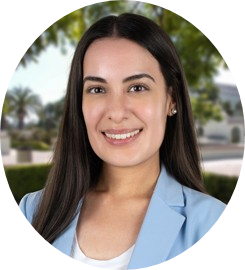
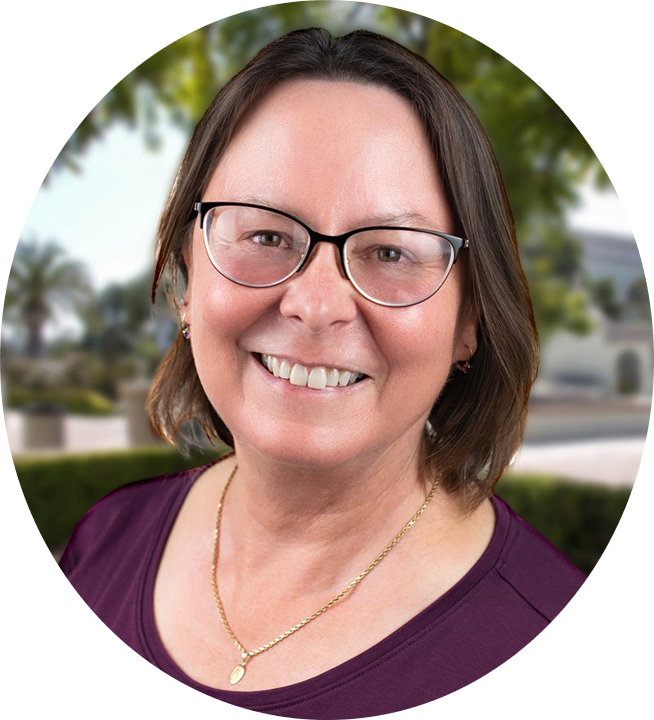
YOUR academic director
Darleen Pryds, PhD [email protected]
Before your first day of classes
COMPLETE YOUR MANDATORY NEW STUDENT CHECKLIST
Our number one priority is you! Our team has prepared a checklist of items that will set you up for success and clarify all action items as a new student. After you are enrolled for your first term and receive a confirmation email from a member of our team, please complete and review all of the following before classes start.
1. View Your Mandatory New Student Welcome Webinar
This webinar will go over a comprehensive look at your program and what to expect as an online learner including resources and tips for success. Each webinar should last around 30-40 minutes. Once you have been registered for classes and receive a confirmation email from our team, you will be emailed the link to schedule your welcome webinar to your @sandiego.edu email address.
2. Schedule Your New Student Check-in Call
In this call, you’ll “meet” a member of your Student Success Team for your program. This will be a chance for us to answer any additional questions you have before you start your first term. Please be sure to have any Canvas-related, program-related, or finance-related questions prepared. After attending the Welcome Webinar, you will be prompted to schedule your call using a scheduling link.
3. Complete Your Canvas Orientation Course - Due January 2, 2026
Once you have been registered in your classes, you will be able to access your New Student Orientation Course on Canvas within 4 hours. When accessing Canvas, please make sure to use Firefox or Chrome as your browser.
The New Student Orientation course is designed to help you navigate your way around your course's layout prior to beginning your first class. You will learn where to find the syllabus, course schedule, assignments, and discussion boards.
Your Orientation is mandatory, and must be completed before the first day of class—so we encourage you to get started! Please plan to spend about 8 hours completing the Orientation course. You can move through the Orientation at your own pace, so schedule your time accordingly.
Looking for assistance?
4. Finalize Your Tuition Payment Plan
We recommend that students start this planning early as some funding sources can take some time to process. Tuition payments should be completed in full by the first day of the semester. Visit the "Tuition and Payment Methods" section for more information.
5. Review your Student Handbook
Please make sure to review your student handbook prior to the first day of class, and reference it as needed throughout your program. The handbook is where you can find information on academic expectations, drop and refund policy, technology requirements, curriculum, frequently asked questions, and more.
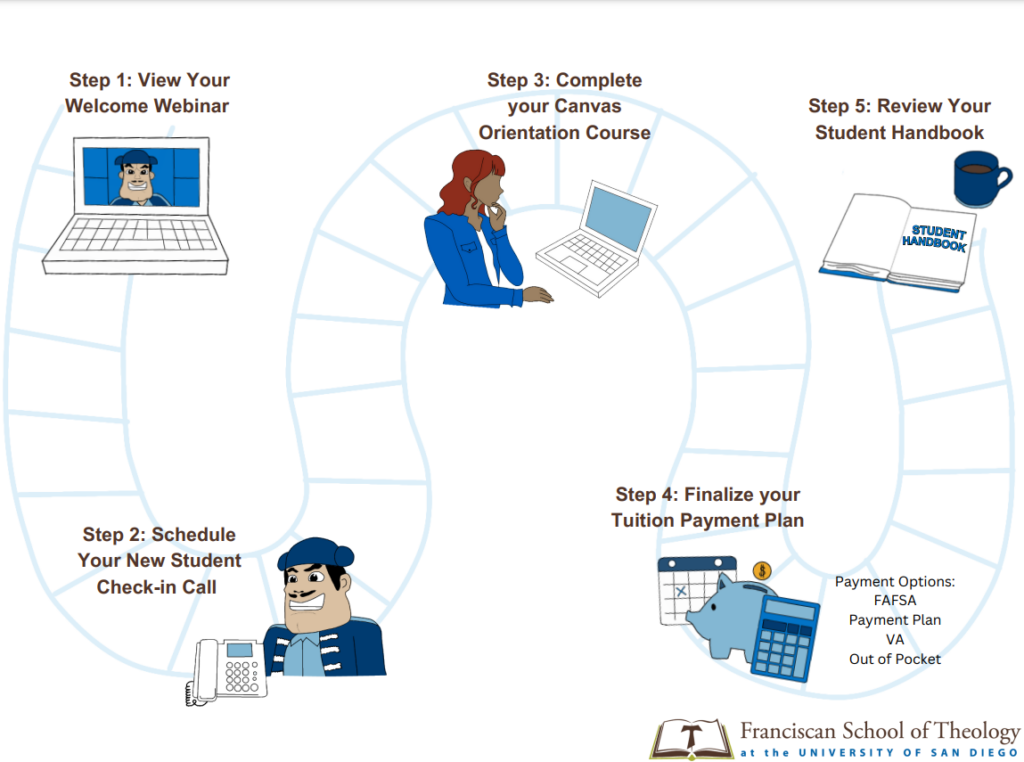
IMPORTANT DATES
Below is a list of significant dates regarding the registration process, payment deadlines, and other important academic and program deadlines.
Fall 2025 Dates and Deadlines
| Important Dates | Date |
|---|---|
| Registration Opens | June 30, 2025 |
| Application Deadline | August 1, 2025 |
| Registration Deadline | August 15, 2025 |
| Orientation Course Due Date | August 29, 2025 |
| Last Day to Drop with 100% Tuition Refund* | September 1, 2025 |
| Payment Due Date | September 2, 2025 |
| Semester Begins | September 2, 2025 |
| First Course Start Date | September 2, 2025 |
| Last Day to Drop with 95% Tuition Refund/ Drop Deadline* | September 5, 2025 |
| Last Day to Withdraw from Course A | September 29, 2025 |
| First Course End Date | October 20, 2025 |
| Second Course Start Date | October 21, 2025 |
| First Course Final Grade Submission Due Date | November 3, 2025 |
| Last Day to Withdraw from Course B | November 17, 2025 |
| Second Course End Date | December 8, 2025 |
| Semester Ends | December 8, 2025 |
| Second Course Final Grade Submission Due Date | December 22, 2025 |
Spring 2026 Dates and Deadlines
| Important Dates | Date |
|---|---|
| Registration Opens | November 3, 2025 |
| Application Deadline | December 1, 2025 |
| Registration Deadline | December 15, 2025 |
| Orientation Course Due Date | January 2, 2026 |
| Last Day to Drop with 100% Tuition Refund* | January 5, 2026 |
| Payment Due Date | January 6, 2026 |
| First Course Start Date | January 6, 2026 |
| Last Day to Drop with 95% Tuition Refund/ Drop Deadline* | January 9, 2026 |
| Last Day to Withdraw from Course A | February 2, 2026 |
| First Course End Date | February 23, 2026 |
| Second Course Start Date | February 24, 2026 |
| First Course Final Grade Submission Due Date | March 9, 2026 |
| Last Day to Withdraw from Course B | March 23, 2026 |
| Second Course End Date | April 13, 2026 |
| Semester Ends | April 13, 2026 |
| Second Course Final Grade Submission Due Date | April 27, 2026 |
Summer 2026 Dates and Deadlines
| Important Dates | Date |
|---|---|
| Registration Opens | March 2, 2026 |
| Application Deadline | April 3, 2026 |
| Registration Deadline | April 17, 2026 |
| Orientation Course Due Date | May 2, 2026 |
| Last Day to Drop with 100% Tuition Refund* | May 4, 2026 |
| Payment Due Date | May 5, 2026 |
| Semester Begins | May 5, 2026 |
| First Course Start Date | May 5, 2026 |
| Last Day to Drop with 95% Tuition Refund/ Drop Deadline* | May 8, 2026 |
| Last Day to Withdraw from Course A | June 1, 2026 |
| First Course End Date | June 22, 2026 |
| Second Course Start Date | June 23, 2026 |
| First Course Final Grade Submission Due Date | July 6, 2026 |
| Last Day to Withdraw from Course B | July 20, 2026 |
| Second Course End Date | August 10, 2026 |
| Semester Ends | August 10, 2026 |
| Second Course Final Grade Submission Due Date | August 24, 2026 |
* During the first semester of enrollment, any tuition refund amounts will not include the non-refundable enrollment deposit amount (5% of tuition).
Download a pdf of your academic calendar
Upcoming Events
Don't miss out on connecting with your University of San Diego global community through a variety of events - featuring academic workshops, cultural celebrations, networking events, and more. There’s something for everyone!
Class Registration Directions
You have most likely already filled out an Enrollment Agreement, which enables our team to register you for classes each term. No further action is required on your part.
If you are not able to register for both of your courses in a given term, please contact your program coordinator immediately. This often happens for students who need to take a leave of absence.
Textbook information
Students are required to have their textbooks on hand by the first day of class. Most textbooks in the online MTS-FT program can be accessed using the Digital Theological Library (DTL). On the DTL, select "Franciscan School of Theology" and your access code will be provided in your courses.
For textbooks not included in the DTL, students may select any vendor they prefer (such as Amazon.com, Half.com, Alibris.com, etc.) to purchase their course materials. In the event a specific vendor is required, it will be specified in the course materials list. The best way to ensure that you have the correct book is to search by the ISBN number(s) listed on the book list.
Physical copies of books are not on hand at the USD Torero Store. The USD Torero online store does offer price comparisons for different online vendors for some books.
Although all textbooks for all courses are listed, students only need to purchase the items for the classes they are taking for the semester.
Digital Inclusive Access (IA) - Integrated VitalSource Textbooks
If your course is indicated to have a "Digital Inclusive Access" textbook, you do have the option to use the integrated Vitalsource e-textbook without needing to purchase a textbook through an outside vendor. For more information, view the "Digital Inclusive Access" FAQs document.
- Students are able to access the e-textbook directly in the course without worrying about purchasing the wrong version or textbook!
- If your course is indicated as using “Digital Inclusive Access” on the textbook list, please note that you must opt-out within the first 7 days of each course to avoid being charged for the guaranteed-lowest price textbook.
- If you do intend to use “Digital Inclusive Access”, no further action is required after you create a Vitalsource account.
- No refunds can be issued once the textbook charge has been assessed.
By using Vitalsource e-Textbooks, students are able to use study tools in Bookshelf such as highlighting, printing limited pages/chapters, sharing notes, and using the Bookshelf CoachMe tool to test their learning while they read.
PAYing for your program
Tuition at FST and USD is billed per semester, not per course. Payment (or enrollment in an official USD payment plan) is always due by the first day of the semester. Failure to do so will subject the student to incurring monthly interest late fees. Please refer to the FST catalog for more information. Students may not carry balances from one semester to the next.
Accounts with outstanding balances after the official payment due date may be subject to course cancellations/removal or a student account hold during the semester; related holds can prevent upcoming registration, graduation, or obtaining transcripts.
Remember: tuition is always due by the first day of each semester.
Tuition amounts shown on this website, or in other university publications or web pages, represent tuition and fees as currently approved. However, the University of San Diego reserves the right to increase or modify tuition and fees without prior notice and to make such modifications applicable to students enrolled at USD at that time as well as to incoming students. In addition, all tuition amounts and fees are subject to change at any time for correction of errors.
Program Tuition
Once you are registered for your courses, your student account will reflect the appropriate tuition costs according to your program. Payments not received by the deadlines are subject to late fees. Your program’s tuition is the following:
- Per Unit (classes are typically 3-units) = $800
- Per Semester (assuming 6-units per semester) = $4,800
- Total Program Cost (including 6 semesters) = $28,800
Students who need to re-take or withdraw from a course may need to pay additional fees according to the Refund/Drop Deadline policies listed in your Student Handbook.
If you have any questions about your Student Account, please reach out to the Torero Hub by submitting their inquiry form or phone at 619-260-2700. All costs and fees are subject to change and are based on the academic year of enrollment
ENROLLMENT DEPOSIT
Please note that students in FST’s Master of Theological Studies - Franciscan Theology program are required to submit a one-time 5% non-refundable deposit. The payment will automatically be applied to your first-semester tuition.
Digital Theological library fee
All Students in the Master of Theological Studies - Franciscan Theology program are automatically charged a technology or “tech” fee of $110 every semester to cover the cost of most textbook materials used throughout your program hosted in the Digital Theological Library (DTL). Please note that there may be required textbooks to purchase outside of the materials included in the DTL.
Refund Policy
Students will be registered for their prescribed courses each semester. All courses must be dropped prior to the first day of the semester to receive a 100% tuition refund* and within the first three days of the start date of the semester to receive a 95% tuition refund*. No refund (reversal of tuition) will be provided after the third day of the semester for any class. *During the first semester of enrollment, any tuition refund amounts will not include the non-refundable enrollment deposit amount (5% of tuition).
DEGREE PROGRESS and COMMENCEMENT
Intent to Graduate
Completing a "Petition to Graduate" also known as "Intent to Graduate" Form is a requirement for every student during their capstone course. Based on your anticipated graduation semester, review the dates below to see the deadline for completing your petition within your capstone course module. Once completed, the FST office will review your academic record and contact you if there are any outstanding requirements or issues. Please note that the $100 fee associated with the "Intent to Graduate" form covers the cost of your cap, gown, dinner, and diploma.
Once your intent to graduate form has been approved for graduation by faculty and regents, please complete the following Graduation Logistics form to let us know how you would like your name displayed on your diploma. You may email the form to [email protected] or return it to the FST's Office of Student Services.
Commencement and Diploma Details
After you complete your online MTS-FT program, you will be invited to participate in a commencement ceremony (which means walking in your cap and gown). Commencement details and information will be sent from your Student Success Team around the month of February.
- Please note, there is only one commencement ceremony each academic year.
- Spring, Summer, and Fall graduates will be invited to the commencement ceremony the May after they graduate.
- All degree requirements must be completed before a student can participate in the commencement ceremony.
Course Details
program requirements
The completion of all the courses in the prescribed curriculum of ten 3-unit courses and the 6-unit Capstone course, for a total of 11 courses and 36 units, is required to successfully complete this program.
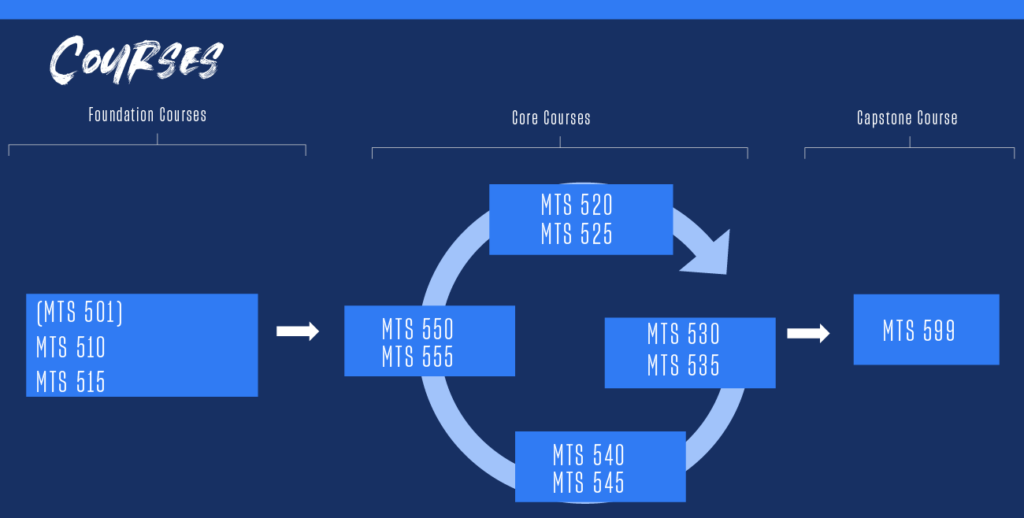
Course Titles and Descriptions
Following Francis: An Introduction to the Franciscan Tradition (MTS 510)
What does the tradition of Francis of Assisi, Clare of Assisi, and those who continue to follow in their footsteps offer our world today? The Franciscan way cultivates peace-making, cares for creation, and forges solidarity with the poor and marginalized in a Christ-centered way of life that responds to the challenges of our world. This interdisciplinary course introduces major Franciscan figures, sources of the Franciscan tradition, and significant interpreters of this tradition to establish the foundation that is developed throughout the MTS-FT program.
Introduction to Franciscan Theology (MTS 515)
(Prerequisite: MTS 510 with a minimum grade of C-)
What is the “new paradigm” that Franciscan Theology contributes to the Catholic tradition? The significant authors of the Franciscan tradition shaped this new approach in the Middle Ages. This course will guide students through an introductory-level study of the themes of the Trinity, Creation, Incarnation, and the human person in major works of these writers. Their relevance today, as expressed in documents of the Papal Magisterium, will be highlighted.
Old Testament: Our Jewish Roots: An Introduction to the Old Testament (MTS 520)
If Jesus only had access to the Old Testament, should we not give it the importance that he gave it? Are stories about Adam and Eve relevant in today’s world? Is the God of the Old Testament different than the God of the New Testament? We will learn about the Old Testament through reading the writings that the peoples of the Old Testament left as their heritage. We will also study the material culture of these people that archaeologists have been able to unearth. We will do this in a manner consistent with various documents on the study of Sacred Scripture that the Roman Catholic Church has issued in the last century. Students will be challenged to recognize the different types of literature present in the OT: wisdom, prophetic, historical and apocalyptic.
History: Unity, Diversity, Change Over Time (MTS 525)
How do we make sense of a faith that develops over time? This course examines key moments of change in the history of the Church, its struggle to maintain unity while respecting the diversities of culture, language, geography, and societies. Special attention will be given to the movement of the early church from the Jewish to the Hellenistic world; the missionary developments and the cultural impact of the Germanic world; the 13th-century social changes associated with the Franciscan movement; the mission to the “new world” and China; “Beloved Amazonia” and the challenges of the 21st century.
New Testament: The Cradle, The Cross, and The Community: An Introduction to the New Testament (MTS 530)
Why are the infancy narratives in some gospels and not others? Why do some writings focus on the cross and others do not? Why do Catholics say that we are saved by the life, death, and resurrection of Christ? We will learn about the New Testament through reading the writings that the peoples of the New Testament left as their heritage. We will also study the material culture of these people that archaeologists have been able to unearth. We will do this in a manner consistent with a sound historical-critical methodology.
Ecclesiology: Being the 21st-Century Church (MTS 535)
The Catholic Church continues to grow as a global community of faith. Trace its new directions from Vatican II to 2021. How does the church respond to changes in society? What is the role of dialogue with other religions? How is decision-making changing? What are the emerging roles of lay leaders, women and men? This course will introduce the thinkers and documents shaping the Church in the 21st Century.
Moral Theology: Conscience and the Common Good (MTS 540)
This course explores moral theology as a dynamic, living tradition that guides faithful discipleship while evolving to address contemporary challenges. Through a distinctly Franciscan lens, students examine key theological concepts including natural law, virtue ethics, conscience formation, and synodality. The course emphasizes moral theology's nature as a wisdom tradition that balances enduring principles with adaptive responses to new contexts. Special attention is given to Pope Francis's moral vision and the role of communal discernment in ethical decision-making. The course culminates in an exploration of how Catholic social thought and moral theology have become increasingly integrated in the modern global church, particularly through networks like Catholic Theological Ethics in the World Church (CTEWC). Through discussions, reflective assignments, and practical applications, students develop their capacity for moral reasoning while engaging with diverse perspectives in an environment of respectful dialogue.
Christology: Who Do You Say That I Am? (MTS 545)
At a critical point in his ministry, Jesus asked his followers: Who do you say that I am? How has Christian tradition grown in its understanding and affirmation of full divinity and humanity in Jesus Christ? How does the Franciscan tradition shed renewed light on the importance of the Incarnation and God’s universal salvific desire? In today’s global reality, how do we best give witness to our faith in Jesus Christ in dialogue with other world religions? These questions frame our study in this course in Christology as we focus on the development of early Church doctrine, the particular contribution of Franciscan thinkers, the importance of intercultural dialogue today, and the significance of Franciscan Christology for the third millennium.
Intercultural Theology: Theology in an Intercultural Context (MTS 550)
How do we make sense of a faith that is diverse and at the same time unified? This course explores the complex issues of Catholic theologies, missions, and indigenous cultures.
Spirituality: Spirituality for the Digital Age (MTS 555)
Franciscan Spirituality addresses today’s ethical challenge by contributing to an “integral ecology,” (cf. Laudato Sì), that is a new understanding of economics, peace-making, intercultural communication, and inter-religious dialogue. The Franciscan spiritual perspective helps to build a new relational paradigm for the Church. The course will underline that the new forms of media are gifts of God that can strengthen bonds of fraternal communication and build a more responsible lifestyle. However, they also present ethical challenges that must be addressed.
Capstone: Finding Your Voice in the Franciscan Tradition (MTS 599)
What statement do you want to make with your life? The capstone project offers the opportunity to find your voice in the Franciscan tradition since the project offers the opportunity to integrate the learning from throughout the program and invites each student to articulate their own interpretation of a theological problem that is grounded in a Franciscan source or related group of sources. Using an academic discipline or group of disciplines to frame their research, the student finds their voice in the Franciscan Tradition through their research, interpretation, and presentation of a theological argument.
Student Resources
This list is helpful resources that will set you up for success. Haven’t written in Chicago/Turabian formatting since your undergraduate program? We’ve got you covered! Want to know what type of computer you will need? No problem. We have listed helpful resources below.
Academic Requirements and Resources
Technical Requirements
You must own or have unrestricted access to a computer for this program. A fast Internet connection is also mandatory.
Courses will utilize a variety of technologies and multimedia. To complete course activities and to access course content, please verify that you have the following technologies and plug-ins available:
- Browser Plug-ins – Windows Media Player, QuickTime, Flash, Shockwave, Adobe Reader, and Java.
- Mozilla Firefox is the recommended browser.
- Microsoft Office is required. If you are using Office 2003 or earlier, download and install the Microsoft Office Compatibility pack.
- Speakers or headset – to listen to multimedia.
- Webcam – for recording video.
- Email – To contact your faculty.
- High-speed internet connection strongly encouraged (DSL or better)
Digital Theological Library (DTL)
All students in the Master of Theological Studies program have access to the Digital Theological Library (DTL) which contains most of the textbook materials used throughout your program. Please note that there may be required textbooks to purchase outside of the materials included in the DTL.
The Digital Theological Library (DTL) can be accessed using this link.
Academic Resources (Study Skills, Videos, and Book Examples)
Study Skills
- How to Research and Write in Graduate School
- How to Develop a Thesis Statement
- How to Construct an Argument
- Template for Analyzing Primary Sources
- Template for Analyzing Secondary Sources
- Grading Rubric for Writing Assignments
Videos
- Making Sense of Academic Writing (12min)
- Skills to Succeed in Graduate School (5min)
- Reading at the Graduate Level (29min)
- Writing at the Graduate Level (22min)
Book Review Examples
Graduate Writing Expectations and Tips
All writing assignments must be formatted according to Chicago Manual of Style/Turabian standards. Discussion posts must contain the appropriate citations. If you want additional writing support, we recommend Purdue Online Writing Lab (OWL@Purdue). In addition to general writing support, the website includes a special section dedicated to formatting guidelines.
- The Chicago Manual of Style Online website that has a lot of additional resources to support you, as well. Using the link, you can view a web version of the printed manual.
- You have a dedicated USD/FST Librarian Martha Adkins to help you with any individual assistance with references or citations. She can be reached at [email protected].
- Another helpful writing resource is the School of Leadership and Education Sciences (SOLES) Graduate Student Writing Center. Enrolled students can submit assignments for review by a writing professional.
- View the FST "6 Tips for Excellent Writing" PDF
- View the FST "Footnotes and Referencing" PDF.
Online Learning Strategies
View our virtual workshop, "Online Learning Unlocked: Strategies, Resources & Collaboration," which will equip you with practical knowledge and skills to apply tangible strategies to learn online in an asynchronous environment throughout your Master's Degree!
Academic Standards for Artificial Intelligence (AI)
With the rise of AI writing assistants, students must ensure that they use this new technology ethically and honestly. Consult this document for guidance.
Download Microsoft Office 365 (Free for USD & FST Students)
Students are able to download Microsoft Office 365 for free! If you don’t have it already, you can download the Microsoft Office 365 suite using your USD/FST student email.
Accessibility Student Resources
Students may request formal accommodations from the Disability and Learning Difference Resources Center and may also use the following accessibility tools:
Accessibility Student Resources
Tailored Support for Neurodiverse College Students Webinar Recording
External Tutoring Resource
USD does not offer subject-specific tutoring resources, so students who are looking for tutoring support are encouraged to identify a tutor using Wyzant.com. Please note that Wyzant is not a USD-managed resource, so use them at your own discretion.
Franciscan School of Theology and University resources
TimelyCare - Telehealth for USD & FST Students
TimelyCare is a provider of 24/7, no-cost telehealth services for USD & FST students to address common conditions that can be safely diagnosed and treated remotely. TimelyCare services are available at no cost to the student. Services include:
- Live and on-demand self-care sessions (yoga, breathing, stretching)
- Access to on-demand counselors for emotional health support
- Access to schedule a session with a licensed counselor (up to 12 times per year)
- View the Nurturing Balance Webinar Recording to learn about more resources
Spiritual Resources
Join the "Franciscan School of Theology Community" Facebook Group
This Facebook group is a place for current FST students, alumni, faculty, staff, and supporters to: connect; to share in specifically Franciscan perspectives, topics, stories, and spirituality; and to stay updated on FST/Santa Barbara friar events and news. Alumni are encouraged to post updates on current work and projects.
FST Student Leadership
The Franciscan School of Theology has an ongoing student leadership group representing all programs and students. They are a welcoming and participatory community for all to come together for spiritual and social purposes. Their mission is to :
- To develop academically and spiritually for professional ministry.
- To promote the Gospel message, following the examples of Francis and Clare.
- To ensure FST is a welcoming community to students and visitors.
- To recognize and embrace diversity.
- To reach beyond the walls of the School in service, peace, justice and care for creation.
- To represent students in academic, administrative, and strategic School policy.
- To identify and address the needs of the student body.
- To facilitate communication to, from, and among students.
- To lead the student body in FST’s common mission.
Don't hesitate to contact your online MTS-FT representatives with any interest, questions, or ideas.
- Kriselle Llamas, [email protected]
- Denise Clare, [email protected]
Economic Resources List
USD's Case Management team has compiled a list of on-campus (local to San Diego) and national economic resources to help students find assistance with a variety of life aspects such as housing, food, mental health, parenting, etc. If you have a need or concern that isn’t addressed by the resources included in this list, please reach out to your Program Coordinator for further assistance. Based on the support, we may refer you to schedule an appointment with a case manager.
Campus Partner Email Opt-Out
Get too many emails? Follow our email opt-out guide to optimize your USD email experience.
USD's On-Campus Resources
If you live local to San Diego, the USD Campus is available to all of our students and includes these additional resources. Even if you far away from campus, many offices offer remote options.
identity resources
Military Student Resources
USD and FST provides student-focused services to all military-connected students, including student veterans, active-duty, dependent children, and spouses.
- Get started by requesting your Request to Certify each semester.
- Explore Military Scholarship Opportunities.
- Please use this link to get a statement of benefit or call the GI Bill Hotline, (888) GI Bill 1(888-442-4551).
First-Generation Student Resources
USD welcomes first-generation college and first-generation graduate students. Please view the resources below to connect with your first-gen peers!
- Visit the USD First-Generation website.
- Free & Virtual First-Generation Graduate Student Symposium.
- Instagram accounts: @usd_fgsa and @usdfirstgen.
- Contact the First-Gen Action Team at [email protected]
- View the USD First-Generation Student Guide.
- Sign up for the First-Gen Network Newsletter (sign up here).
- Facebook account: USD First-Generation Students.
- Watch the First Gen Wellness Webinar Recording.
Student Parent Resources
Many students who attend USD are also parents. USD offers the following resources:
- Join the Parenting Student listserv: [email protected]
- Pregnancy Resources: Several USD Centers are available to accompany pregnant students as they navigate pregnancy while a student at USD.
- Financial Aid: The university’s Financial Aid Offices can help you qualify for additional loans to cover medical expenses and child care.
- Childcare Solutions: USD supports many resources for finding infant and child care to meet your family’s needs.
- View a recording of our Student Parent Time Management webinar.
DACA/Undocumented Student Resources
Please view the USD information trifold for current and prospective students. It is also available in Spanish.
Review the Higher Ed Immigation Portal website which includes some useful information and connections to the undocumented student community, state and national policies, information on graduate and professional school access, retention and success. It is a living document that will be updated regularly and include any new resources that campuses and organizations develop.
Online Student Handbook
The handbook is where you can find information on academic expectations, drop and refund policy, technology requirements, curriculum, frequently asked questions, and more.
Need Something?
- Request an Itemized Statement
- Request a Degree Plan
- Request a Grade Verification Letter
- Request an Enrollment Verification Letter
- Request a Student ID Card
- Request an Official Transcript
- Complete the request form, submit payment, and then send the form via mail, fax, or email to FST.
Canvas @ USD
In your program, you can think of Canvas as your virtual tool to share information with professors and peers. You will use Canvas to access your course content, find course syllabi, review your assignments, and more. Be sure to use your USD credentials to log in. If you have any difficulty logging into your course, be sure to contact ITS at (619) 260-7900 or [email protected].
Netiquette Guidelines
The concept of netiquette covers proper communication online. Read our guidelines to help cultivate a supportive and productive online environment.
your partners toward success
At USD, you join a community of individuals who are all committed to one common goal: your success. As you familiarize yourself with your team, take the opportunity to virtually meet and connect with the resources available to you as a student. Click on the profiles below to learn more about each office or staff member and watch a brief video about their role in supporting you through graduation.
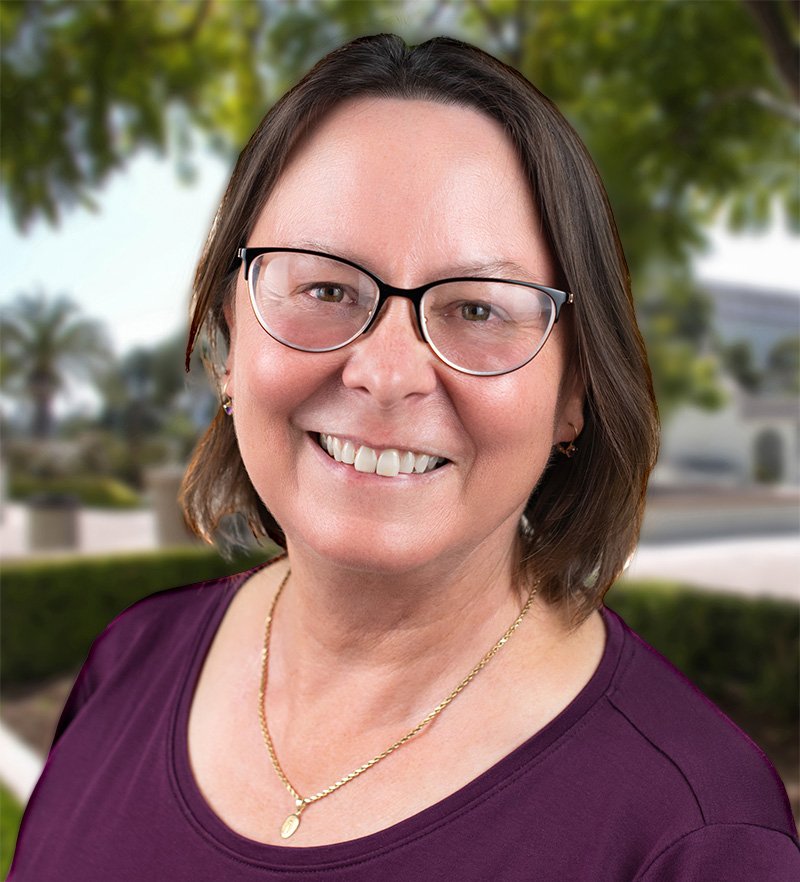
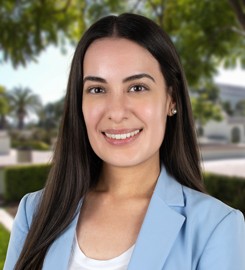
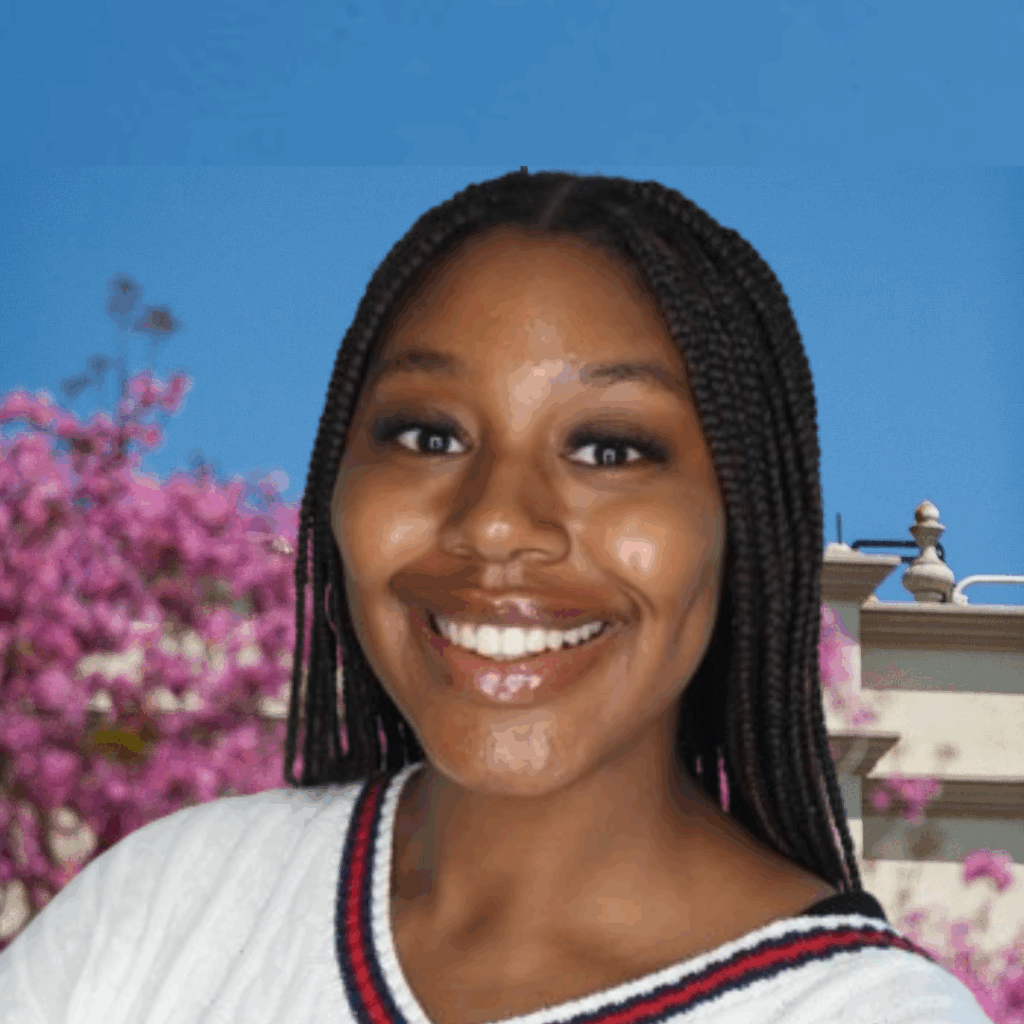
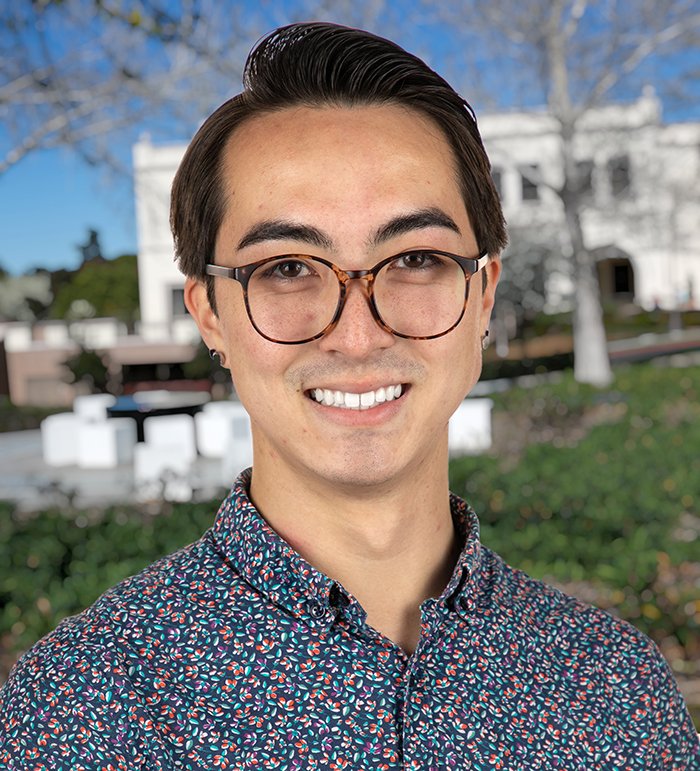
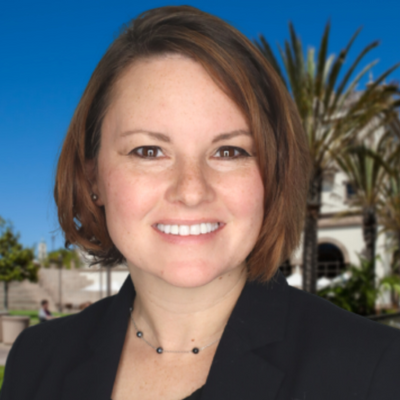


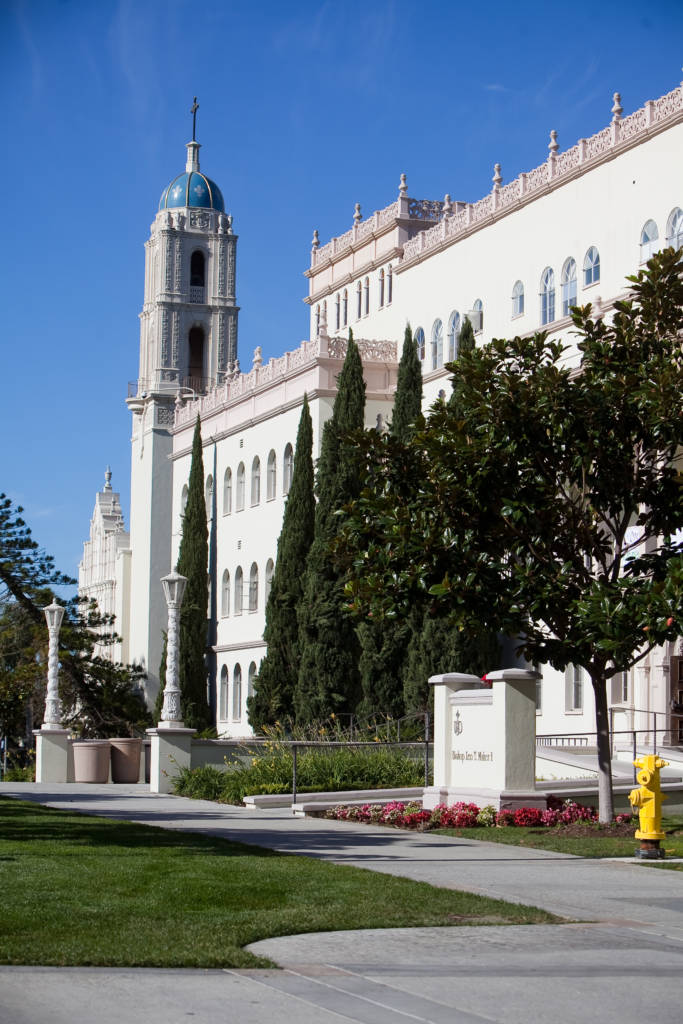
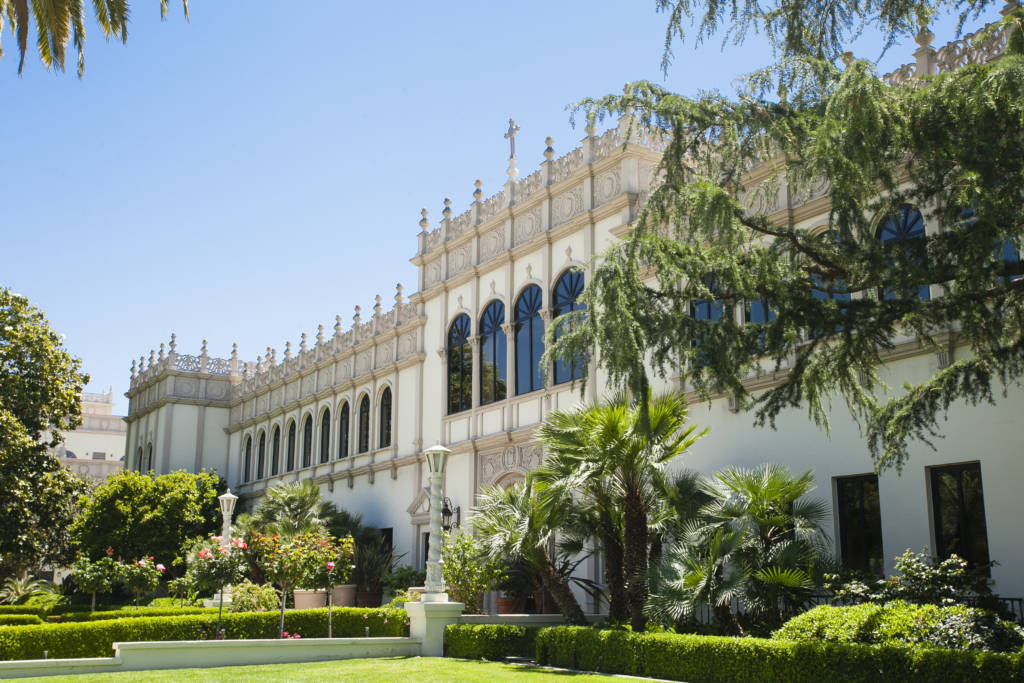
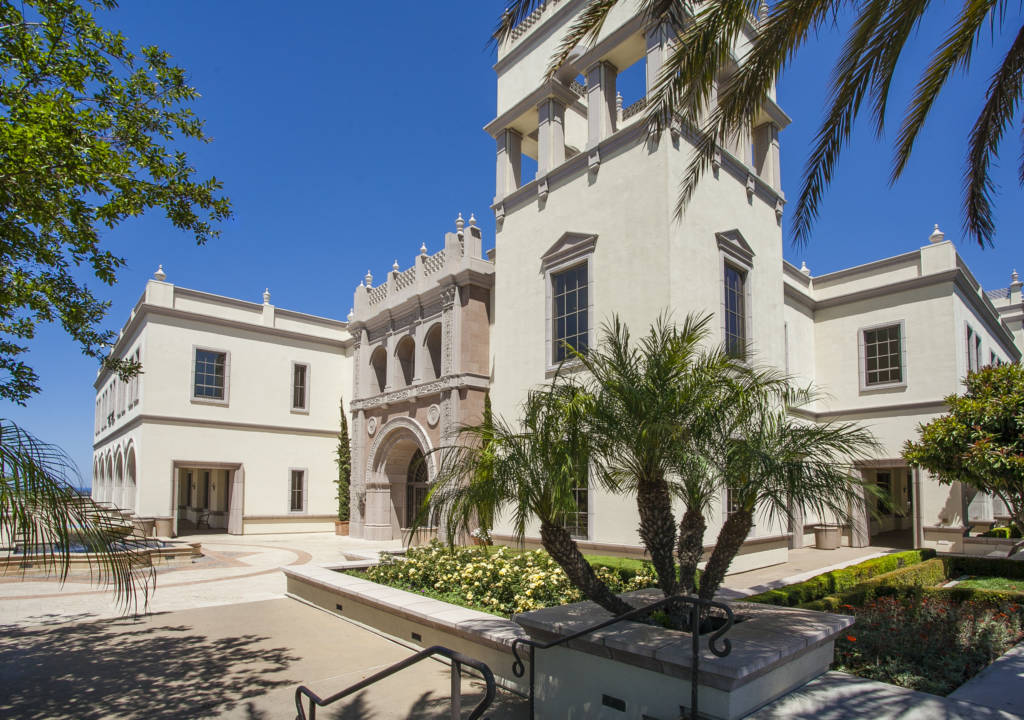
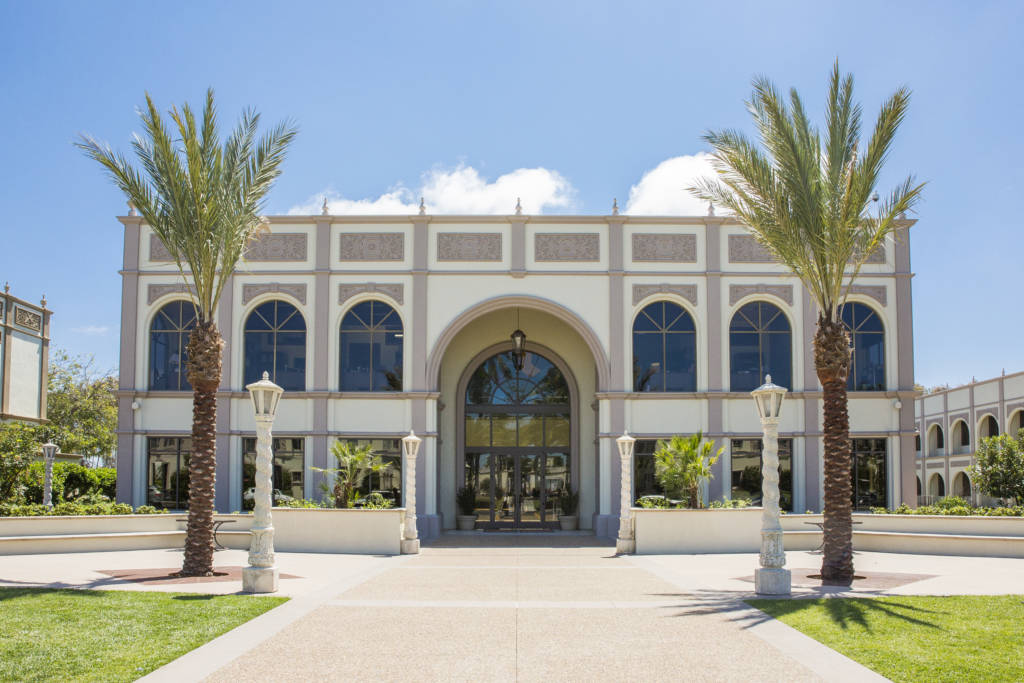
Career and professional resources
Whether you're hoping to find a new job or earn a promotion, FST and USD have a wealth of resources available to prepare you for your dream role.
Frequently Asked Questions
How much is my tuition?
Tuition for the online MTS-FT program is $800 per unit.
With a total of 36 units, the full cost of tuition for the program is $28,800.
Tuition amounts shown on this website, or in other school publications or web pages, represent tuition and fees as currently approved. However, the Franciscan School of Theology reserves the right to increase or modify tuition and fees without prior notice and to make such modifications applicable to students enrolled at FST at that time as well as to incoming students. In addition, all tuition amounts and fees are subject to change at any time to correct errors. Please note that the displayed tuition covers only the cost of courses, and additional expenses such as books and other fees are not included.
How many units is my program?
The online MTS-FT program is a total of 36 units.
Students will enroll in two prescribed courses each semester for a total of six (6) semester units. During your final term, students will enroll in a single 6-unit capstone course.
Is this a full-time or part-time program?
The University of San Diego considers 9 or more units as full-time student status. Your program is designed to be part-time, and students enroll in just 6 units per semester. There is no full-time option for this program.
Is on campus housing available for part-time and online degree students?
On campus housing options may be available only for full-time on campus students. Housing is very limited for graduate students. We highly encourage part-time and online students seeking housing in San Diego to leverage the resources below including the USD Off-Campus Housing website.
Two of our most popular resources are the Off-campus Housing Facebook page where we list housing options, and our Roommate Finder List.
Please note that the University of San Diego does not research, vet or endorse any of the off-campus apartments listed on our website or the off-campus housing Facebook page. The listings provided are posted by third parties who are not affiliated in any way with the University of San Diego. Students must contact the manager of each apartment building directly regarding questions, current pricing and availability.
How do I register or drop classes?
All students are manually enrolled each semester by the USD Student Success team. If you are not able to enroll for a term or if you need to drop your courses, it is your responsibility to notify your Program Coordinator. All students will be held to the respective drop deadlines and refund schedule detailed in your Student Handbook.
Where do I find my bill and how do I pay it?
Login to your my.sandiego.edu student portal. Under the “My Student Account” tab, review the tutorials for directions on how to view and pay your bill, set up a payment plan, and enroll in eRefund (Direct Deposit). View the “Tuition and Payment Methods” on your Student Success Center for further details.
Where can I view my final grades?
Log into your my.sandiego.edu student portal and navigate to the “Torero Hub” section on the sidebar. Click on the “My Academics” tab and locate the “View My Grades” link in the top-middle section. Alternatively, you can view your program progress at a glance using the “Degree Works” link.
If you notice a grade inconsistency between Canvas and your MySanDiego portal, please email your instructor to verify what the final grade should be. Your instructor has the ability to update the posted grade.
What if I need to take a break from courses?
If you need to take time off from your program, please email your Program Coordinator or the Student Success team at [email protected]. Since you have submitted your enrollment commitment, our team will automatically register you in courses each term unless you have previously notified the team about taking a break.
How do I order transcripts?
To order your official, unofficial, or e-transcript(s), view the transcript ordering options page. Otherwise, you can view unofficial/order official transcripts through your MySanDiego portal. Under the “Torero Hub” sidebar option, click on the “My Academics” page, then click on “Request Official Transcript” under the “My Classes” section.
When will I get my diploma?
Congratulations on finishing your program! Diplomas are mailed about 6-8 weeks after the degree requirements have been met and processed. Diplomas are mailed to the current address on file at the time degree requirements are completed. (To check your address information, login to your my.sandiego.edu student portal and view your personal information under My Torero Services.)
You will first be emailed a copy of your e-diploma from Parchment prior to receiving your mailed physical diploma.
Who do I talk to if I have additional questions or concerns about my program?
Throughout your program and after graduation, your Student Success team is here to help! We recommend contacting your Program Coordinator directly, but you can also email our team address at [email protected].
In addition to our team, your Academic Director is a great resource!
What should I do if I miss a week of class?
This course moves very quickly, and it is important that you turn in all assignments on or before their due dates. If, because of an emergency, you have missed a week or more of course work, please contact your professor immediately to inform them. While there is no guarantee that you will be allowed to make up your work, informing your professor early is the best way to get back on track and finish your course successfully.
Please do not wait more than a week without informing your professor. If your instructor’s email is not already visible on the Canvas course, please use the USD directory to find their contact information.
Is there any required time that I need to login to my online course?
No, online degree programs are 100% online and asynchronous so that you will never be required to log in during a specific date or time.
There may be supplemental synchronous opportunities such as Office Hours with your instructor, virtual workshops or on campus events that you may participate in.
What can I expect for deadlines in my course?
The 7-week courses traditionally follow a weekly pattern with three important days:
- Tuesdays – When the class/modules start. It’s recommended to read the Module Overview, review readings/media, and begin to think about ideas for the discussion board.
- Fridays – When the initial discussion board posts are due. Remember that posts are due before 11:59 PM PST.
- Mondays – When discussion board replies and assignments are due. Most discussion boards expect 2 replies per week.
Please note that there may be some exceptions to this structure. Always refer to the syllabus for deadline details. Please contact the course instructor with any questions.
What are the course surveys? Do I have to complete them every course?
The course surveys are an opportunity to give your feedback on the course assignments, instructors, pacing, workload, learning management system, accessibility, etc. The feedback is reviewed by school leadership and used to determine how courses should be improved for future iterations. All surveys are completely anonymous – which is why your instructors have to make public announcements asking for everyone to submit their surveys. Feedback in the survey will not affect your final grade.
Course surveys traditionally open during the final weeks of the course and close before final grades are posted. The instructors and USD Student Success Team will remind you to complete these surveys for each class. Your program appreciates the time you take to improve the student experience!

